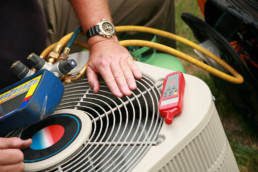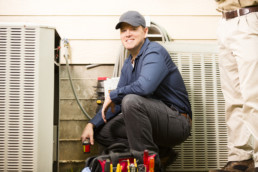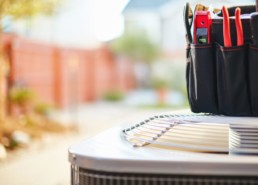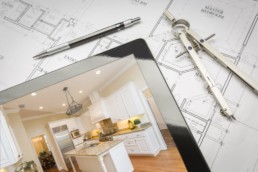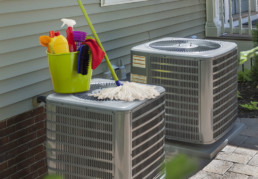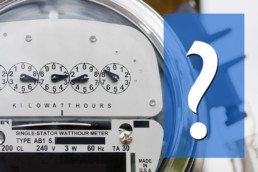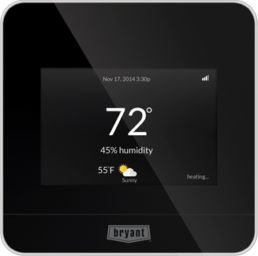Old Air Conditioner? How To Tell If It May Be Time For A New One
Purchasing new HVAC equipment requires a substantial capital outlay, making some people hesitate when it is time for them to start looking for a new HVAC system. However, most HVAC systems will only last around 10 years. If you find that you are spending a substantial amount of money on repairs, it might be worthwhile to replace air conditioner equipment in your home. Here are some other ways to tell that it is time for you to go ahead and buy a new central air conditioning system.
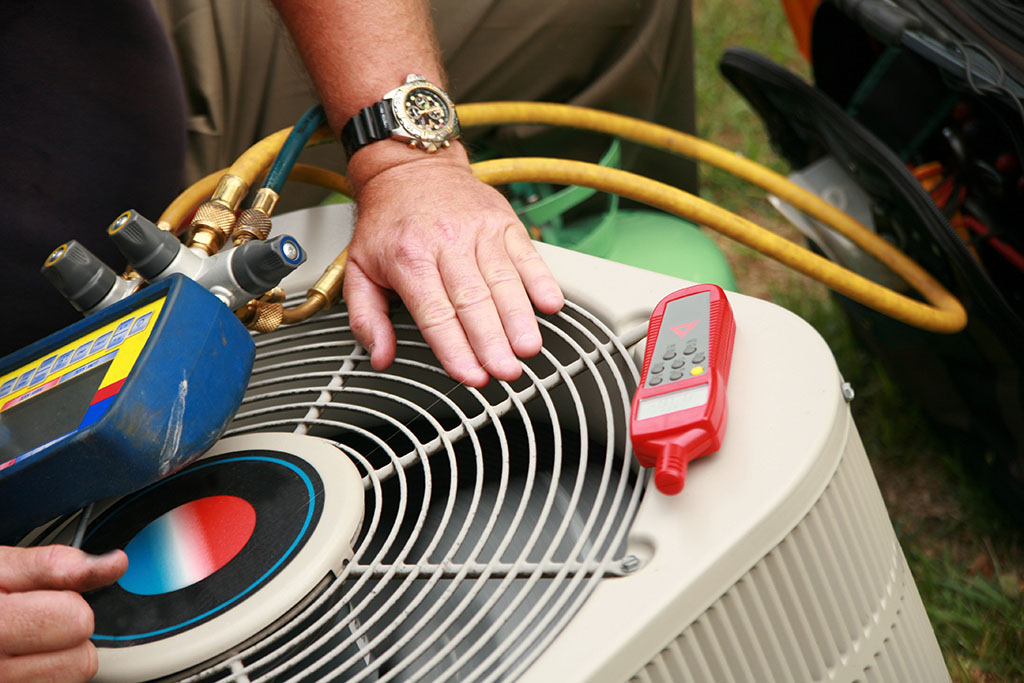
1. Your system is old
If your air conditioning system is close to 10 years old or is older, it is probably time to think about buying a new HVAC system. If your costs to cool and heat your home are running too high, your system may not be working efficiently. Newer systems are much more energy efficient, which can help you to save money on your utility bills. R22, the refrigerant that was used in older HVAC systems, is currently being phased out because of environmental regulations. Replacing the R22 refrigerant in an older central air conditioning unit is also costly.
2. Excessive repairs and high utility bills
If you find that you are having to have your air conditioning system repaired frequently, it may be more cost-effective for you to purchase a new system than to continue spending money on repairs. If your utility bills have substantially increased, purchasing a new air conditioning system may help you to get them under control.
3. Dust and noise
if you notice that your air conditioning unit is very noisy, it might indicate that your central HVAC unit may have an indoor coil that is failing. Excessive noise might also indicate that the ductwork that you have is insufficient for the size of your home. If your home always is dusty despite cleaning, it is an indication that you have leaks in your ductwork. Leaky ductwork will make it more expensive to operate your HVAC unit and will make it work less efficiently.
4. Too much humidity
Central air conditioning systems are supposed to remove humidity from the inside of your home so that it will be more comfortable. If you notice that your home has too much humidity inside, your central air conditioning system is not working properly. You can obtain a repair estimate and determine whether it is worthwhile to make the repairs or to purchase new HVAC equipment.
5. Inconsistent cooling patterns
If you notice that your air conditioning system does not cool all of the areas of your home equally, it is not working correctly. Air conditioning systems are supposed to provide consistent temperatures throughout your home. You could have a system that needs repairs, or your system may be too small for the square footage of your home. If your system is too small, it can cause it to work too hard, be less efficient and break down much quicker than if you have a unit that is large enough for your home.
Replace air conditioner equipment with Mahle Cool Air & Heating
If you believe that it is time for you to purchase a new HVAC system, it is important for you to talk to the professionals at Mahle Cool Air & Heating. Our highly knowledgeable and skilled technicians have an average of 25 years of experience. A family-owned business that is in good standing, Mahle Cool Air & Heating proudly serves residents of Sarasota, Venice, Englewood, North Port, and others. Call or text us today at (941) 203-7955 learn more and to receive a quote.
Cold In Florida? Better Check These Things Before Turning On Your Heater!
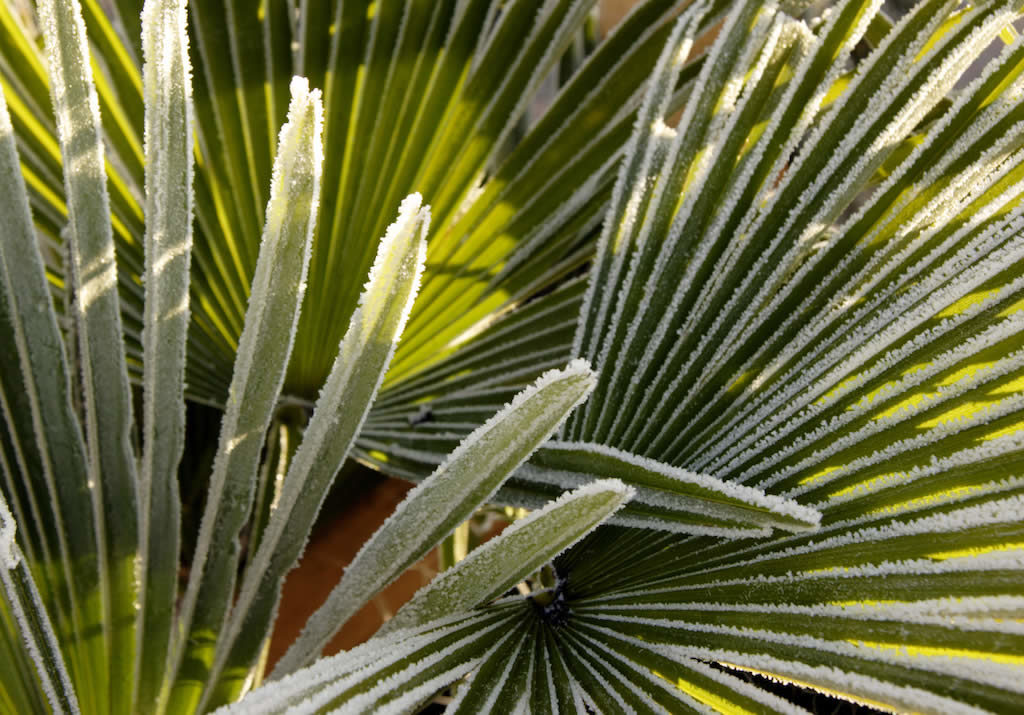
In a hot state like Florida, some of us get excited about cranking up the heater we don’t get to use very often. However, it’s wise to hold off until you’ve made sure that your unit is clean, safe and optimally efficient. This will not only extend its life, but it will save you money, protect the environment and keep you warmer.
When it’s cold outside, a running heater in Florida is just as important as a running heater in Wisconsin. Regular maintenance by your HVAC company is a must, but there are some do-it-yourself steps you can take to get the most out of your equipment.
Check Air Supply Vents
Warm air enters your rooms through air supply vents, so they need to be thoroughly dusted or vacuumed. This is especially true of floor vents that collect dust, debris and pet hair.
Check Air Filters
Depending on the type of system you have, the air filters on the return grills should be changed either every one to three months or every six to 12 months. You may even have washable air filters.
Whatever kind you have, they shouldn’t look dark or have dust and lint clinging to them. Check to see if they need washing or replacing, especially if you know deep down in your heart that it’s been a while. When you hold them up to a light source, plenty of light should shine through.
Not only do filters keep your furnace or air handler heater clean for better performance, but they filter out dust, bacteria, and allergens before those pollutants wind up in your lungs. Everyone agrees that poor air quality in the home is a health risk. Clean filters also eliminate that unpleasant odor of burning dust.
Clean Around the Unit
Clean the entire area around the heat pump, furnace or air handler heater. Clear any obstructions. It goes without saying that chemicals and flammable materials in the vicinity need to be relocated a safe distance away. Dust the exterior of the unit.
Trim back trees or shrubs to prevent contact with heat pump outdoor units, and inspect the condenser coil. That’s the looping length of copper or aluminum that exchanges heat from the air. Excessive dirt will impact efficiency and lead to repairs down the road.
If you have an indoor system, your evaporator coils are internal and are inspected by a technician during routine maintenance.
Play It Safe
For owners of gas furnaces, the importance of having a well-functioning smoke alarm can’t be overstated. It’s time to change the batteries, cover your ears and make sure that the alarm is working properly.
If you don’t have a smoke alarm, get one. Install it today.
Along the same lines, a carbon monoxide detector could save your life. If you have one, replace the batteries. Test it before you turn on the heat.
If the reading on the device exceeds 30, turn off the heater immediately, open all the windows and call your HVAC company. Some experts advise leaving the house until a professional diagnosis and correct the problem.
Finally, make sure that your thermostat is working properly.
Maintaining a running heater in Florida may not be at the top of your priority list, but it’s better to be safe than sorry. The longer a heating system is neglected, the greater the likelihood of malfunctions that call for costly repairs.
Besides, who wants to be caught unawares in a cold snap? Check out our special fall and winter offers and Call or Text us today for more details (941) 203-7955.
How To Size A Replacement Air Conditioner In Southwest Florida
Air conditioning is a necessity of life in Florida's hot climate. Although people can get away with neglecting their air conditioner in other parts of the country, homeowners in Florida have to keep their air conditioner in good shape to avoid cooling outages that have potentially dangerous consequences. With over 100 days of temperatures exceeding 90 degrees each year in Florida, the possibility of heat stroke is a serious concern for homeowners who fail to keep up with air conditioner maintenance. Additionally, living daily life without adequate cooling can be exhausting and uncomfortable. To keep your home cool, it is important to replace your air conditioner when it reaches the end of its useful life.
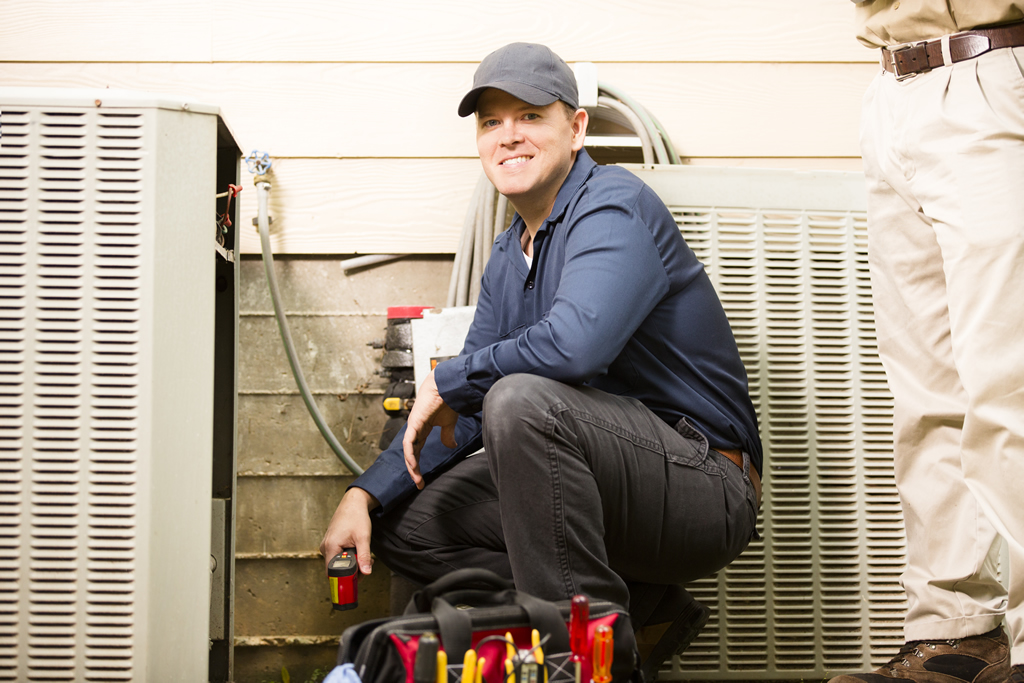
Importance of Choosing the Right Size
When choosing an air conditioner, the first factor that you should consider is the size of the unit that is right for your home. If you are using window air conditioners, you will need to find units that fit snugly inside your window frames without leaving gaps that can provide entry holes for pests. Size is equally important when choosing a central air conditioner because you will need to find an air conditioner that meets the specifications of your home. Choosing an air conditioner that is the right size for your home will ensure that your cooling unit is functional and aesthetically pleasing.
Consider BTU Output
One of the most important factors to consider when choosing an air conditioner is the BTU capacity necessary to cool your home. If your previous air conditioner was installed by a licensed professional, calculations were probably done to make sure that your air conditioner had a sufficient level of output. Start by researching the BTU capacity of your old air conditioner to establish a starting point for determining how much BTU capacity you will need. In general, you will need about 24,000 BTUs to cool 1,500 square feet of living space. You should, however, run the numbers to determine exactly how much capacity you will need.
Calculating How Many BTUs You Need
Before purchasing an air conditioner, you should be sure to calculate the BTU capacity necessary to cool your home. Experts generally recommend that homeowners have at least 16 BTUs of cooling capacity per square foot of living space. You should keep in mind that there is a broad range of factors that can increase or decrease the capacity that you will need. Some of the main factors to consider include:
Hot Florida Weather: Many of the BTU calculations that can be found online are not designed for Florida's hot climate. Florida residents should have air conditioners with 20 percent more BTUs than normal to prepare for scorching heat waves.
Ceiling Height: Tall ceilings mean cooling more cubic feet of living space. A home with 10-foot ceilings requires about 25 percent more BTUs to cool than with ordinary 8-foot ceilings.
Insulation: Unfortunately, many older and inexpensive homes in Florida do not have good insulation. Poor insulation can increase the amount of power necessary to cool your home by as much as 60 percent.
Choosing Air Conditioner Size
The physical dimensions of your air conditioner are also an important factor to consider. If your air conditioner is too large, it could give your home an unsightly appearance. Size is especially important when choosing a replacement air conditioner because changing sizes can require expensive equipment modifications.
You should try to find an air conditioner that is the same size as the original air conditioner that came with your home. Make sure that your new air conditioner will fit on your concrete pad and that the pipe going into your home has enough throughput to support the output of your new air conditioner. When choosing an air conditioner size, you may also want to consider how you will hide your new air conditioner. If the plants surrounding your existing air conditioner are not tall enough to cover a more lofty unit, you may have to factor in the cost of additional landscaping work. Call or text us for any questions (941) 203-7955.
Keep Your Air Conditioning Bills Down By Shading Your Air Conditioner
If you want to save money on your air-conditioning bill but don't know where you should start, you could be wondering what steps will help you reach your goal. Most people don't realize the location and condition of their outdoor unit plays a role in how much they pay for energy each month.
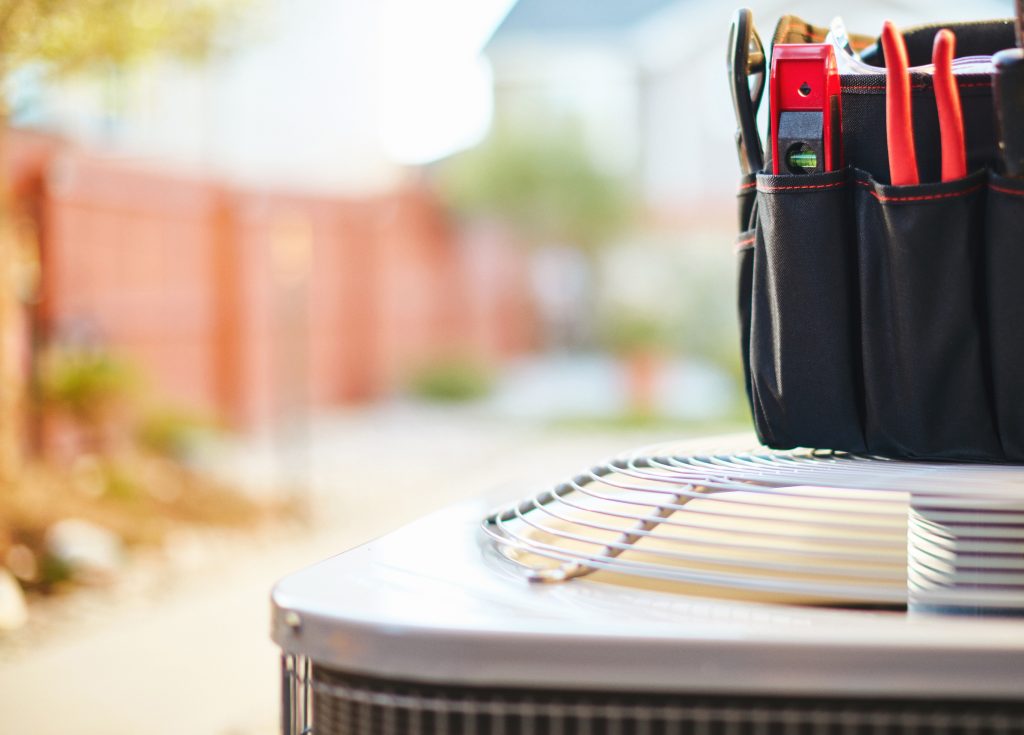
Shading your unit from the sun's hot summer rays is a great way to keep more money in your pocket. You will learn why shading your air-conditioning system makes a difference and get a few ideas on how to move forward.
Why Cooling Your Outdoor Unit Matters
Take a look at how your air-conditioning unit works when you want an idea of how shading it can help you save money. In simple terms, your unit sucks in air from the environment and cools it before blowing the air into your home. Allowing your unit to heat up forces it to work much harder to do its job properly, and your bill will go up as a result. Keeping your air-conditioning unit cool reduces the amount of work required to cool your home. The savings will then speak for themselves.
Plant Trees and Shrubs
Planting trees and shrubs around your yard is a great way to protect your air conditioning system from the hot sun during the summer months. You can get the best possible results by choosing trees that match the look and style of your home and environment. Consider how big the trees will grow so that you don't plant them in a dangerous spot. Planting trees in your yard can also shade your windows from the sun, and you will take your savings to a whole new level.
Install an Awning
Not everyone wants to plant trees in their yard, and some are even unable to do so for a range of reasons. No matter the reason, you can opt to install an awning over your unit to keep it as cool as possible when the temperature peaks. Choose between a standard and retractable awning depending on your needs and goals. Since they leave the awning in place more often than not, most people use a standard awning.
You don't want to buy an awning and find that it won’t fit in your yard. Before you spend any money, measure the amount of space you have around your air-conditioning unit. Also, pay attention to the sun to discover the angle from which it hits your unit most of the time.
Place a Tent Around Your Unit
If you don't want to spend money on trees or an awning, you are not out of options yet. You can go to the store and buy a tent to place around your air-conditioning unit when your goal is to reduce your energy bill. Don't make a final decision until you know what size is right for your situation, and you won't face unneeded complications along the way. If you live in an area with heavy rain or wind, stabilize your tent to prevent it from blowing away or falling apart when you least expect it.
Consider Moving Your Unit
You might not have any viable options when it comes to shading your air conditioner from the sun, but you don't need to give up yet. You can move it when everything else fails to do the trick. People sometimes want to move their unit without getting help from an expert, but you don't want to follow in their footsteps. Unless you are a trained professional, you could make critical mistakes and damage something without realizing what has happened. Always contact a team of experts when you need to relocate.
Final Thoughts
Shading your air conditioner is a great way to protect yourself from unreasonable energy bills over the summer. You might think doing so won't make much of a difference over the long run, but you must try it for yourself to see the impact it can have. To get an accurate number, compare your energy bill after you make the change to before you installed the shade. Those who have already done so report an average savings of $200 per year. The steps you take to save money matter and add up over the years, and you will be thrilled when you discover how much you can lower your power bill. For further assistance, call or text us at (941) 203-7955.
Keeping It Cool in New Additions
As families change and grow, so does the size of the home. Building a new addition in Florida means creating more square footage that must be cooled in the year-round heat. Any new addition onto a home may mean that the central cooling unit needs to be upgraded; all additions require a professional diagnosis of the system as a whole. A homeowner must understand if a new system is necessary, how the different options work, how to choose the right system, and how to keep cooling bills low in the sometimes brutal Florida sun.
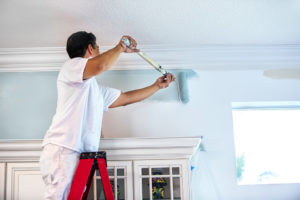
When Is a New System Necessary?
Only a professional can assess if a new system will be necessary to cover the added square footage. This is why a basic energy audit is essential as part of the addition plans. The audit will include cooling for the current home, and an estimation for the addition, so be prepared to share addition plans with the cooling professional. The estimation will help determine if the current cooling system will be able to handle the new space, or if a new system will need to be installed. This information will also help determine the size and construction of the addition, as the cost of cooling the area will have an effect on how much can be built. If the audit determines that a new HVAC system is necessary, that cost must be added into the overall cost of the home modification. Either the system will need to be replaced, or a ductless mini-split system, or other smaller type of system, will need to be installed.
Considering the Options
If the existing cooling system just won’t cut it with the new rooms, there are some options to consider. The range of A/C systems includes zoned, room, central, and evaporative cooler, all which effectively cool an area when maintained properly. The zoned unit, also known as the ductless mini-split, will provide cooling without ductwork, and is mounted on a wall. Many Floridians choose this option as it is among the most cost efficient to install. A room unit provides spot cooling, and is mounted in a window or comes through a portable unit. The central unit relies on duct systems to move the air throughout the whole home. This is one of the most expensive installs, but the most convenient and energy efficient. The evaporative cooler pulls outdoor air into the space, cooling your home through evaporation methods. This is also known as a swamp cooler. The right option is the one that fits into the budget, cools the new area, and remains efficient. Some homeowners choose a new cooling system for the addition alone to avoid changing the structure of the home with ductwork.
Other Factors to Consider in Choosing the Right System
Budget is often a deciding factor in choosing a system to cool an addition. However, it’s important to consider the amount of money saved over time with the right cooling system. After the addition is completed, the existing system will begin to work harder to cool more space. This will increase bills and wear down the unit faster. This long-term money loss is exactly why the cost of cooling the addition must be figured into the overall budget for the project. The existing cooling system must also be considered in more than its current effectiveness. Are the residents of the home happy with the current system? Does it keep the home as comfortable as desired? Will it be as effective in the new rooms? An addition to the home is a great opportunity to add ductwork throughout the new walls and to consider or update the current A/C system.
Tips in Lowering Overall Cooling Costs
As space is going through changes, consider the following tips to help reduce the cooling cost over the long term and continue cooling your home for years:
- Use a programmable thermostat.
- Use ceiling fans to help move air.
- Take this opportunity to add extra insulation to attics and air ducts. Seal any cracks in the home.
- Use an outdoor grill during Florida’s hottest days. Avoiding indoor appliances will help the A/C do its job.
- Cover windows with energy-efficient material. This will let in light while blocking solar rays.
- Use the fans in the kitchen and bathroom to help remove humidity from the home.
These tips will keep the A/C unit working longer, and will reduce energy bills. The new rooms will be as cool and comfortable as the rest of the home.
Determining the specifics of an air unit is easier with a professional consultation. The type of unit, ways to increase efficiency, and the real cost of cooling the addition will be determined during an estimation. Contact Mahle Cool Air in Venice to begin the consultation process for your new addition. Call or Text (941) 203-7955
Learn the Pros and Cons of Mini-Split Heat Pump HVAC Systems

If you're upgrading your HVAC system or choosing one for a new construction, there are many great heating and cooling products. A mini-split heat pump is a viable option if your home doesn't have ductwork. Learn more about this type of system and how it can efficiently keep you comfortable throughout your home.
Understanding a Mini-Split Heat Pump System
This HVAC installation uses mini-split technology with a heat pump. It's ideal if you already have a ductless system or don't plan to install one. The mini-split is also a great choice when you add a room to your home but extending the ductwork isn't possible.
The system has two main components: an exterior compressor and condenser and an interior air handler in several rooms. It heats spaces by pulling air from outdoors, heating it and releasing it into the rooms. It also cools spaces by pulling warm air out of your house.
Pros of a Mini-Split HVAC System
Mini-split systems offer several advantages to other HVAC equipment, including cost. They're a more affordable option for homes that don't have existing ductwork. Because of their design, they're more energy efficient than central HVAC systems that lose about 30 percent of heated and cooled air in the ducts.
Mini-splits consume less energy too because they maintain zoned temperatures. You can adjust where you need more heating and cooling instead of changing the thermostat for the entire house.
The zoned temperatures also maximize comfort for each person in your home. For example, kids at play indoors might need to turn down the thermostat while you relax in another room that's set for your comfort. The whole family doesn't have to suffer just because one person likes cooler or warmer temperatures.
In addition, there's more flexibility when it comes to installing mini-split systems. They eliminate having to install ducts and only require a small, 3-inch hole in the wall where the handlers connect to the exterior unit. Installers can also hang them on walls, suspend them from the ceiling or mount them into drop ceilings. You can even get floor-standing models.
Cons of a Mini-Split HVAC System
Fortunately, there aren't many disadvantages to choosing a mini-split heat pump for your home. If you already have ductwork, then installing this system may cost more than replacing the central HVAC unit that you have. Although, you might be able to offset the cost with local incentives and rebates.
Installing this HVAC system isn't a do-it-yourself project either. It requires the skill of a trained installer because not placing the exterior and interior units correctly affects how the system functions overall. Having them in the wrong places may reduce the energy efficiency of the whole system. Each air handler also needs to be the correct size for each room to properly control temperature and humidity.
Furthermore, you might not like how the air handlers look inside your home. Vast improvements have been made throughout the years to improve the aesthetics, and many units look quite stylish. However, they're more noticeable than central HVAC vents.
Find Your HVAC System Today
If you need a new heating and cooling system in Venice, Florida, Mahle Inc. Cool Air & Heating offers a complete line of Bryant equipment. Our knowledgeable staff can educate you further about which type of system may work best for your home. Call or Text us today for more details (941) 203-7955.
Save Money This Year With a Clean Central HVAC System
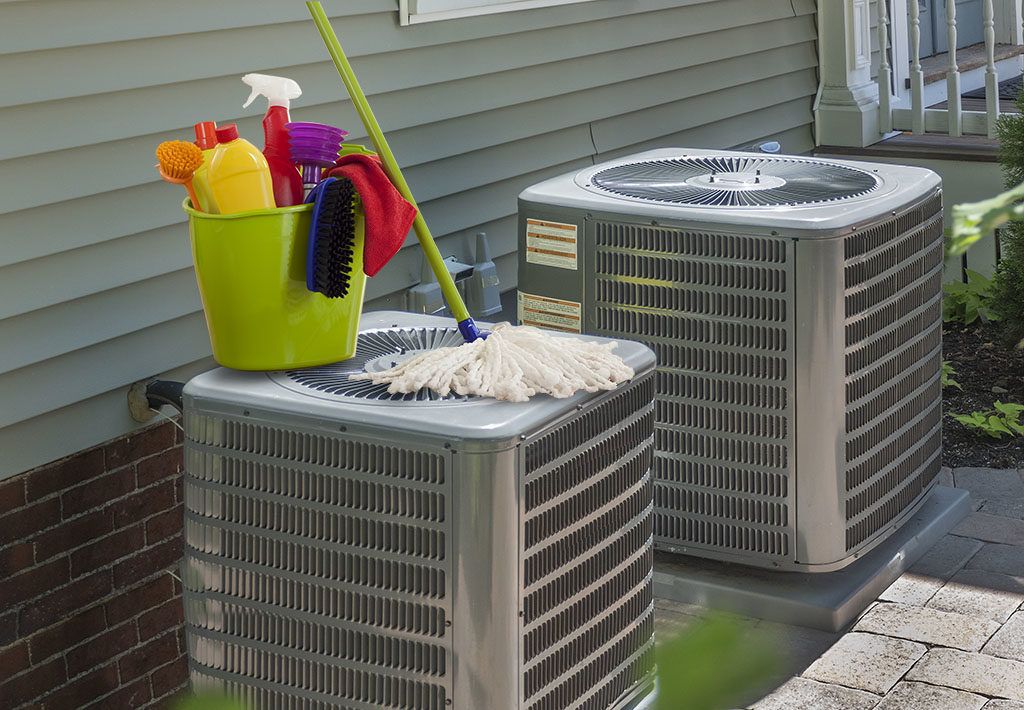
If you are looking for a way to save money throughout the year so that you can safeguard your budget, turning to your heating, ventilating and air conditioning unit is one of the best places to start.
Some people ignore air conditioning maintenance because they want to save time and money, but doing so is expensive when you look at the real cost. A dirty HVAC unit requires more power than normal to operate at its best. When you explore the ways a dirty HVAC unit can cause your energy bill to increase, you will know that taking care of the problem is the smart move.
Dirty Ducts
You might want to take a look at your ventilation system if you have not done so this year. As you run your HVAC unit, dirt can build up and restrict your airflow, forcing your HVAC unit to work much harder, and it will increase your power bill more than you likely suspect as well as expose occupants to allergens, dust particles, and mold.
Dirty Air Handler
Air handler cleaning is another way to decrease your energy bill so that you will have more money to spend on the things you enjoy. Although your filters work hard to protect your HVAC unit, dust and other small particles can still build up if you are not careful. A dirty air handler will put stress on your HVAC unit, and your utility bill can alert you to the problem before you notice the other red flags. Air handler cleaning is always worth the investment when you look at the long run.
Dirty Filters
When air conditioning maintenance is near the top of your mind, you won't want to forget about your filters. The filters in your HVAC unit collect dust, dirt, allergens and other things that will harm the quality of the air in your home. Failing to maintain your filters will enable dirt to build up and block the flow of air. Not only will this problem impact the air you breathe, but it will also affect your energy bill each month. Ensuring that your filters are in good shape is a critical part of the puzzle that will pay for itself in no time.
A Team of Experts on Which You Can Depend
Once you realize that cleaning and maintaining your HVAC unit is an investment that offers impressive returns, you will know what to do. At Mahle Cool Air & Heating, we will perform cleaning and other maintenance tasks that will keep your HVAC unit running at its best for as long as possible. When you enlist our help, a member of our team will come to your location to inspect and address any issues you might be experiencing. Everyone deserves to have fresh, comfortable air at a reasonable price, and we can help you achieve that goal. Call or Text us today for more details (941) 203-7955 and don't forget to check out our specials.
How Much of your electric bill is the air conditioner?
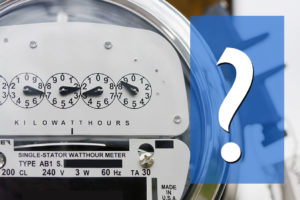
While summer is the hottest time of year, in Florida you will likely need to run your AC even during the winter months to get some relief from the heat and humidity. Air conditioning keeps you cool, helps you to avoid heat stroke, and overall create a more comfortable environment to complete your daily tasks. The cost of heating and cooling is something that is a concern because the average household spent almost 50 percent of their energy bill on cooling costs during the summer months in 2009. It’s beneficial to understand how much your air conditioner energy use will affect your electric bill.
Size of the air conditioner
The size of your air conditioner is the primary factor to consider when calculating your electric costs. Air conditioners are sold in small, medium, large, and extra-large rooms. British Thermal Units (BTUs) is how air conditioners are measured and based on how much square footage they’re designed to cool effectively. A small air unit designed to cool up to 150 square feet is 5,000-6,000 BTUs, while a larger one made to cool 450 square feet averages 10,000 BTU. They can be purchased in BTUs up to 24,000 for rooms up to 1,560 square feet. A larger unit is ideal if you have an open floor plan that allows the air to circulate between rooms.
Other factors
The size of the room isn’t the only thing you need to consider. Factors such as excessive sunlight, rooms that hold more people, and the kitchen benefit from having a unit with a larger BTU. The outside temperature is something else to keep in mind because it will take more energy and runtime to drop the inside temperature to a comfortable level. Well-insulated rooms cool easier and require less electricity, while a room with poor insulation is going to increase your bill a bit more. Check the energy efficiency rating for each unit. The majority of units comply with Energy Star standards to conserve on usage. They use up to 14 percent less energy than the government requirements to qualify for the rating, and in some cases qualify for a tax credit.
Reducing costs
Keep your costs lower by taking additional steps to reduce consumption. Ensure that your unit is adequately rated to cool the room you’re installing it in. A 5,000 BTU air conditioner will not cool a room that is 1,000 square feet. It will need to work at maximum capacity and still be ineffective at cooling down the room temperature. Most units are programmable and allow you to set the temperature while you’re in bed or at work to cut costs. Draw the blinds during the day to keep the sun out and open windows at night to let cool breezes in, instead of running your air conditioner all night long while you’re sleeping. You can even set them to turn on shortly before you get home to cool the house down before you get in the door.
Calculation
A small 6,500 BTU air conditioner will use about 144 kWh running for six hours a day, while a larger 12,000 BTU unit running for six hours every day will use about 270 kWh per month. These are estimates and the settings on your unit and the other factors that impact usage will impact your average consumption. If you’re home all day or need to run your air conditioner at night to be comfortable, your air conditioner energy use will be higher. It's going to fluctuate from month to month depending on how the price for each kWh is on your bill.
Your electric costs also depend on where in the country you live in. Some states have lower rates than others, and they fluctuate from month to month making it difficult to estimate exactly how much running your air conditioner will cost you from one month to the next. Utilize these tips to cool your house down while keeping your costs low. Call or Text us today for more details (941) 203-7955 and don't forget to check out our specials, financing, and rent-to-own options.
Are Heat Pumps More Efficient Than Air Conditioners?
Homeowners can rely on energy efficient heat pumps during the summer and the winter months. There are different kinds of heat pumps, but the fundamental concepts for the designs of the units are similar. The units can heat or cool air because there is refrigerant and also a transfer of heat. The flow of the refrigerant can be reversed inside a unit, which will cause the heat to be transferred from a different part of the unit.

Refrigerant
The refrigerant in the unit is used to cool the air that is pushed into a home by the fan on the blower motor. The pipes are insulated to control the transfer of heat as the refrigerant flows through the unit. When there is a transfer of heat, there could also be condensation because the moisture from the air could condense into a liquid. The condensation could form on the outside of the coils as the refrigerant flows through the inside of the coils.
Heat
If the flow of the refrigerant is reversed, then a different part of the unit will generate heat. The refrigerant will flow from the condenser to the evaporator, to the compressor and then back to the condenser. The increase in pressure will cause the temperature of the refrigerant to rise. The pressurized refrigerant is a source of heat. The heat pump is used to transfer the heat from a source of heat to a heat sink such as into a home. The term “heat sink” is used to refer to a destination for the heat.
Convenience
The units are convenient because a homeowner can use a heat pump as a heating system and also as a cooling system. Some homes may have two different systems such as a furnace and an air conditioning unit. An HVAC technician can inspect a home and then recommend some heating and cooling systems. If the local climate has a moderate range of temperatures, then a heat pump may be a suitable choice.
Weather Conditions
Some regions have very cold weather conditions during the winter months. A furnace can be used to effectively control the inside temperature of a home when the outside temperature is very low. In contrast, a heat pump will not be as efficient as a furnace in a very cold climate because a heat pump is only efficient within a limited range of temperatures. A furnace will provide more heat but will also generate larger expenses for monthly utility bills.
Costs
A heat pump is more energy-efficient than a typical furnace because the heat is generated from techniques for compression, which will require less electrical energy than the electrical energy for a furnace. Homeowners could use a heat pump to reduce the costs for monthly utility bills. A primary concern is ambient room temperature. The efficiency of a heat pump will decrease as the outside temperature decreases because the heat pump must generate much more heat in the colder weather conditions.
HVAC Services
Customers can consult with HVAC professionals and discuss specific concerns such as options for controlling the costs for monthly utility bills or different methods for reducing an ambient room temperature. Business managers and homeowners could use the benefits from the improvements to justify the costs for installing a new heating and cooling system. The technicians can offer suggestions for several improvements and also recommend different brands of energy efficient heat pumps.
If you are looking for a new cooling and heating system and have questions about what system is right for your home contact the AC repair experts at Mahle Cool Air today. Call or Text us today for more details (941) 203-7955 and don't forget to check out our specials, financing, and rent-to-own air conditioning options. Stay Cool with Mahle!
Wifi thermostats, Bigger Savings Through Easier AC Management
Wifi thermostats continually increase in popularity, and it’s easy to see why! In today’s connected society, almost everyone has access to the Internet at all times. This connectivity led to an explosion of devices controlled remotely, including the Wifi thermostat. This small investment decreases your energy use at home, making you more environmentally friendly, and in time will pay for itself.
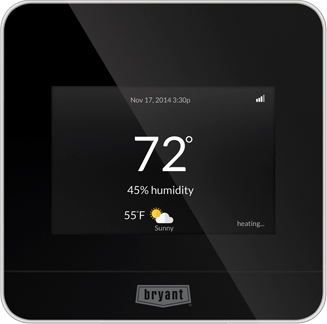
Your Wifi thermostat, or smart thermostats, comes with a state of the art, full-color touchscreen. This attractive screen promotes a user-friendly interface. Some argue that a programmable thermostat provides the same benefits, and they are right to a certain degree. However, most people find programmable thermostats difficult to navigate, never input their schedule, and receive little to no benefit. The user-friendly aspect of wifi thermostats ensures you fully utilize all features.
With its smart setback feature, your wifi thermostat will learn your personal preferences and automatically make adjustments as necessary. The software analyzes patterns in your daily and weekly habits and fine-tunes the temperature accordingly. Before long, it will remember that you stay away later on Wednesdays but come home early on Friday.
Designers realize local weather plays an important part in temperature control and built in a four-day local forecast screen. This display allows you to keep in mind the outside conditions when programming for the day. Perhaps it will be raining, so the house should be warmer when you come in dripping wet.
In addition to making changes via the Internet, wifi thermostats allow for detailed energy use reports. Information is collected from your unit, analyzed, and produced into an easy to read the report. You can use this information to adjust your daily habits to maximize energy efficiency.
Tips to save energy
You will also receive monthly tips on how to increase your energy efficiency based on the data collected. These tips suggest ways to decrease energy use when not at home when to increase the temperature and the optimal time to reset before you come home. Perfect Humidity technology is also included with your wifi thermostat. This technology allows you to maintain optimal cooling conditions based on the relative humidity in your area. Humidity greatly affects how cool your home feels. Seventy-five degrees in zero percent humidity feels much cooler than seventy-five degrees in one-hundred percent humidity!
Several different modes of programming allow you to set up profiles to match your current lifestyle. Use seven-day wide awake programming to actively control the temperature all day. The most commonly used mode, home-sleep, set temperatures for when someone stays at home and when you sleep. Vacation programming enables you to set a return time and temperature.
More control over your temperature
Wifi remote access capabilities allow you to control every aspect of your thermostat from anywhere with an Internet connection. If you remember an appointment after work, you can extend the time you are away from home.
Not only does your wifi thermostat give you complete control, but it also reminds you of important air conditioning and heating maintenance. No more forgetting to change the filter or have the unit serviced. You can also receive alerts for high or low humidity and temperature.
Compatible with humidifiers, dehumidifiers, and ventilators, wifi thermostats can help you control every aspect of the climate in your home with one device. No matter the typical weather where you live, wifi thermostats can lower your energy costs with by regulating several devices.
Hybrid Heat systems can also be managed with your wifi thermostat. This relatively new technology enables you to utilize both gas and electricity to heat your home in the most cost-effective way. Combine with your wifi thermostat to boost savings! Eliminate the need to change between heat and cool with the wifi thermostat, it switches for you! Many cool mornings turn into warm days. If you leave the heat on with traditional thermostats, you may come home to a surprisingly warm house, but not with a wifi thermostat.
Your wifi thermostat also comes with a five-year parts limited warranty with timely registration. Make sure to register your unit to ensure continued functionality. While your system should function properly for years to come, this warranty gives you peace of mind with your investment.
Bottom line
Wifi thermostats greatly increase your energy efficiency and decrease the annual cost to maintain your home climate. They are quickly making traditional and programmable thermostats obsolete and greatly increase the resale value of your home. This small investment pays off not only as you live in the home but if you decide to sell. With exceptional after-sale service, they can’t be beat. Call or Text us today for more details (941) 203-7955 and don't forget to check out our specials, financing, and rent-to-own air conditioning options. Stay Cool with Mahle!
